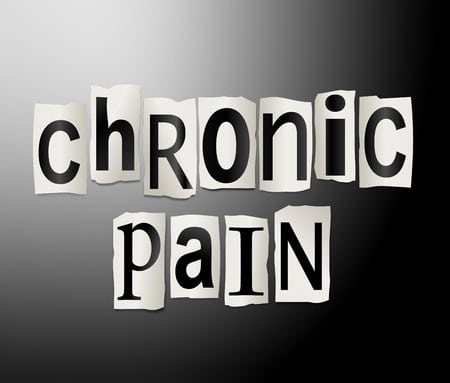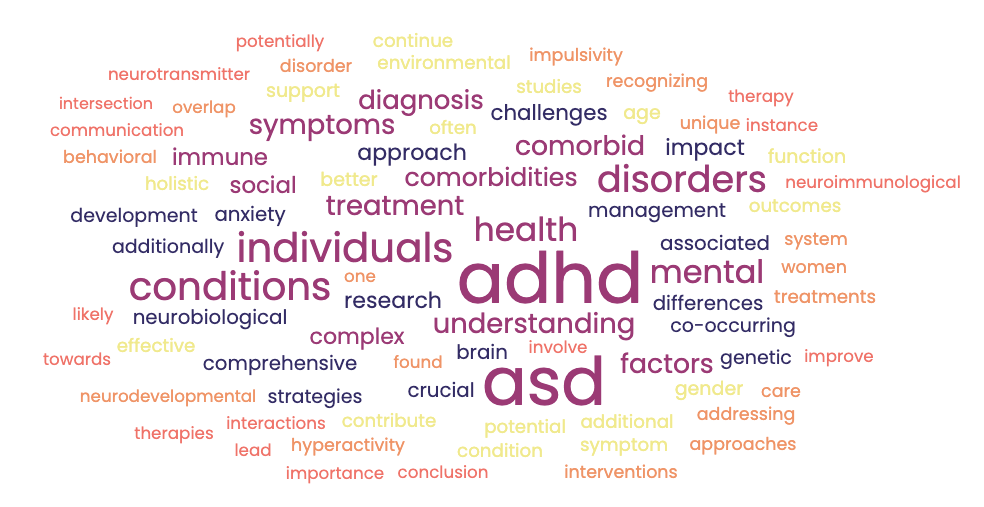There are many people who suffer from what doctor’s describe as chronic pain. The management of this type of ongoing pain can be complex, which is why an integrative approach to treatment is essential to helping patient’s get relief and find a better quality of life.
Pain is considered to be chronic when it lasts longer than 3 months, above and beyond what would be considered a normal healing period. Ongoing pain can cause structural and functional changes to the nervous system. As a result of these changes, the pain can continue to exist even after the injury has healed.
Chronic pain can manifest as a result of various diseases and illnesses. Certain risk factors may increase the likelihood of experiencing chronic pain such as traumatic injuries, stressful life events, worsening medical or surgical conditions, and family history. Chronic pain is a significant problem for many individuals with other medical conditions as well, including, multiple sclerosis, stroke, brain injury, spinal cord injury and amputations (O’Connor et al. 2008; Sackly et al. 2008). If the pain is left untreated it can lead to many physical and mental health difficulties, lowering an individual’s quality of life and causing great distress and suffering. Often individuals who suffer from chronic pain seek treatment from many healthcare providers. Individuals are typically put on many different medications with unpleasant side-effects to control pain and some have even tried multiple surgeries. Individuals with chronic pain are often left without hope when told that nothing else can be done.
Chronic pain is often coupled with psychosocial difficulties. Relationships can be affected as those individuals suffering from chronic pain become isolated from their friends and family, and can exhibit symptoms of depression, insomnia, and frustration with the healthcare system. Because chronic pain is a complicated problem that affects the individual’s mental and physical health, chronic pain management often requires a combined treatment effort. It is recommended that rehabilitation psychology, musculoskeletal medicine and a pain management specialist treat the patient in an integrative manner. Most importantly, individuals with chronic pain can significantly reduce the severity of their pain by being actively involved in their pain control plan. A rehabilitation or health psychologist can assist individuals to move towards reaching this goal. They can help increase active involvement in pain control plan by working to develop a physical activity routine and mental health exercises. Though the outcomes of psychological treatment have shown to be significantly effective for managing chronic pain, studies show that very few (10-15%) individuals with co-morbid disability and chronic pain report having tried a psychological intervention (Ehde et al., 2006; Hanley et al., 2006; Widerstrom-Noga & Turk, 2003).
An example of a psychologically-focused treatment strategy is chronic pain acceptance, which is based on the principals of Acceptance and Commitment Therapy (ACT). This approach focuses on both thinking (willingness to experience pain) and doing (engagement in life), and it is related to positive adjustment, lower pain interference and decreased depression. More specifically, patients are taught to allow some pain some of the time, how to be willing to experience pain and still engage with life. They are also taught non-judgmental awareness of pain and how to act with intention. Using Acceptance and Commitment Therapy (ACT) in treating chronic pain emphasizes the importance of flexibility in responding to pain. This is different from commonly-studied coping strategies that focus on using distraction techniques to redirect attention away from the pain, reframing thoughts and eliminating pain.
Other evidence-based treatment also includes Cognitive Behavioral Therapy (CBT) for Pain and Hypnosis. Hypnosis treatment for acute and chronic pain has been shown to be very effective. Though studies on hypnosis for pain have focused primarily on acute pain, more recent studies are examining its effect for chronic pain management when coupled with CBT. Those who are interested in this combined treatment should discuss this with a health or rehabilitation psychologist.
Remember, it is very important to receive treatment in an integrative manner. Therefore, if you seek treatment from a psychologist make sure they take every step to ensure that care is coordinated with your other providers, including your primary care doctor, pain specialist and/or musculoskeletal medicine physician. Providers should also strive to offer an interdisciplinary holistic/integrated approach to any treatment that they provide for individuals with chronic pain.
When should an individual with chronic pain consider seeking treatment from a psychologist?
- Symptoms of depression are present: Individuals who are depressed are less likely to engage in self-management
- Increased levels of anxiety or worry related to daily activities or fear of pain
- Increased levels of pain interference with activities, including sleep, relationships, and physical activity
- If catastrophizing or very negative thinking about pain management exists
- Low self-efficacy for pain management
Here is a list of evidence-based psychological treatments offered for individuals with pain:
- Cognitive Behavioral Therapy (CBT) for chronic pain
- Hypnosis for acute and chronic pain
- Acceptance and Commitment Therapy (ACT) for Chronic Pain
- Mindfulness-Based Intervention for pain
Resources :
- American Chronic Pain Association www.theacpa.org
- American Pain Foundation www.painfoundation.org
- American Pain Societywww.ampainsoc.org
REFERENCES
O’Connor, A. B., Schwid, S. R., Herrmann, D. N., Markman, J. D., & Dworkin, R. H. (2008). Pain associated with multiple sclerosis: systematic review and proposed classification. PAIN®, 137(1), 96-111..
Sackley, C., Brittle, N., Patel, S., Ellins, J., Scott, M., Wright, C., & Dewey, M. E. (2008). The prevalence of joint contractures, pressure sores, painful shoulder, other pain, falls, and depression in the year after a severely disabling stroke. Stroke, 39(12), 3329-3334.
Ehde, D. M., Osborne, T. L., Hanley, M. A., Jensen, M. P., & Kraft, G. H. (2006). The scope and nature of pain in persons with multiple sclerosis. Multiple Sclerosis, 12(5), 629-638.
Hanley, M. A., Jensen, M. P., Ehde, D. M., Robinson, L. R., Cardenas, D. D., Turner, J. A., & Smith, D. G. (2006). Clinically significant change in pain intensity ratings in persons with spinal cord injury or amputation. The Clinical journal of pain, 22(1), 25-31.
Widerström-Noga, E. G., & Turk, D. C. (2003). Types and effectiveness of treatments used by people with chronic pain associated with spinal cord injuries: influence of pain and psychosocial characteristics. Spinal Cord, 41(11), 600-609.








